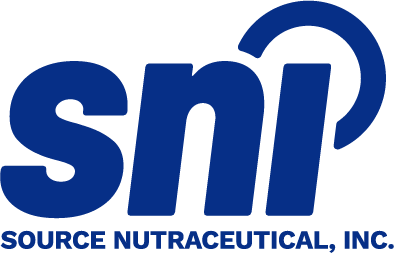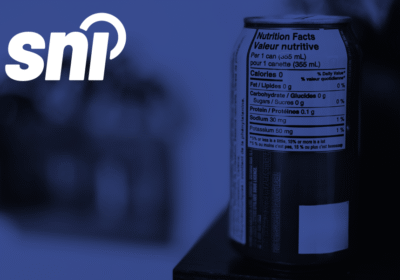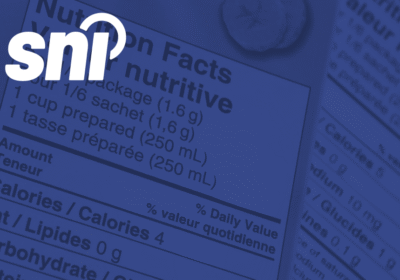The U.S. Food and Drug Administration (FDA) has announced a major regulatory update, revoking or proposing to revoke 52 existing food Standards of Identity (SOIs) following a comprehensive internal review. This decision represents a significant shift toward modernizing food regulation in the U.S. and is expected to impact both U.S. and Canadian food manufacturers, exporters, brand owners, and product developers.
Although it was originally created to ensure consistency and transparency in food labelling, many of these standards have remained unchanged for decades. Advances in food science, changes in consumer preferences, and the introduction of modern safety and labelling laws have made many of these rigid requirements obsolete. The FDA’s move is part of a broader federal initiative to reduce regulatory burdens, increase transparency, and support innovation in the food sector.
This blog post outlines what Standards of Identity are, why these changes have been introduced, which products are affected, and what the revocation means for the broader food industry in North America.
What are Standards of Identity?

Standards of Identity are legally defined regulations that specify what ingredients, composition, and characteristics a food product must have to be marketed under a particular name. The first standards of identity were introduced in 1939 to promote fairness in food labelling and protect consumers from misleading or fraudulent practices.

For example, a standard of identity may outline the minimum milk fat content in ice cream or the permitted ingredients for cheddar cheese. These rules help ensure that products labelled with a standardized name meet consistent expectations. However, many of these standards have become outdated, and some may now limit innovation by preventing the use of newer, more sustainable, or healthier ingredients
Why has the FDA decided to revoke the U.S. Standards of Identity?

The FDA’s decision follows a strategic review of its portfolio of more than 250 food SOIs. The agency identified 52 standards that are no longer useful, relevant, or aligned with modern food safety protections. Many of the revoked or proposed-for-revocation standards were developed before the introduction of today’s robust consumer protections, such as:
- Mandatory nutrition labelling
- Ingredient declarations
- Allergen disclosure
- Safe food production requirements
- Oversight of deceptive marketing and false claims

According to the FDA, retaining these outdated standards would no longer serve a clear regulatory purpose and may restrict the development of innovative products. The revocation of these standards will allow the agency to focus its resources more effectively on risks that have a meaningful impact on public health.
Which Food Products are Affected by the Updated U.S. Standards of Identity?
The 52 standards identified for revocation fall under the following categories:
Canned fruits and vegetables
Eleven SOIs are being revoked through a direct final rule. These include products that are no longer found in the U.S. marketplace, such as artificially sweetened fruits made with saccharin or sodium saccharin.
Dairy products
Eighteen SOIs are proposed for revocation, including specific standards for milk, cream, frozen desserts, and certain cheese products.
Other food categories
Twenty-three standards are proposed for revocation across categories such as macaroni and noodle products, baked goods, canned juices, food dressings, flavourings, and some seafood items.
A full list of the affected standards is available in the FDA’s official rulemaking documents and includes both direct final rules and proposed rules published in the Federal Register.
What the Updated U.S. Standards of Identity Mean for Businesses?

For companies operating within the U.S., this change presents an opportunity to modernize product development, simplify compliance, and respond more flexibly to consumer demands. By eliminating narrowly defined recipe-based standards, businesses may gain more flexibility in:
- Reformulating products to include alternative or functional ingredients
- Reducing sodium, sugar, or saturated fat without violating SOIs
- Updating processing methods for efficiency or sustainability
- Introducing new products without needing to conform to rigid definitions

For example, a U.S.-based company may now be able to use modern artificial sweeteners in canned fruit products without conflicting with outdated Standard of Identity (SOI) definitions that previously limited sweetener types. Similarly, a small dairy producer can explore reformulating cheese products using alternative ingredients or technologies that would not have met historical criteria.

Although these updates provide more freedom, businesses are reminded that all existing food safety and consumer protection laws remain in full effect. Companies must still comply with regulations under the Food, Drug, and Cosmetic Act, which includes ingredient transparency, safe manufacturing practices, and truthful labelling.
What Does the U.S. Standards of Identity Updated Mean for Canadian Exporters?

Canadian food manufacturers that export to the U.S. may also benefit from these changes. The revocation of certain SOIs may reduce the need to reformulate products to meet U.S.-specific definitions, especially in categories like canned fruit, enriched pasta, or cheese alternatives. This may lower regulatory barriers for Canadian products entering the U.S. market and promote greater alignment between the two countries’ regulatory frameworks.

For example, a Canadian co-manufacturer producing shelf-stable pasta for both domestic and U.S. clients may now have more freedom to standardize formulations across both markets without being bound by U.S.-only requirements that no longer apply.

While this change may ease product development and export planning, Canadian businesses must continue to comply with all relevant U.S. import and labelling laws. The absence of a Standard of Identity does not remove the obligation to provide accurate product descriptions, allergen disclosures, and safe, legal ingredients.
How Do the U.S. Standards of Identity Compare to Canada?
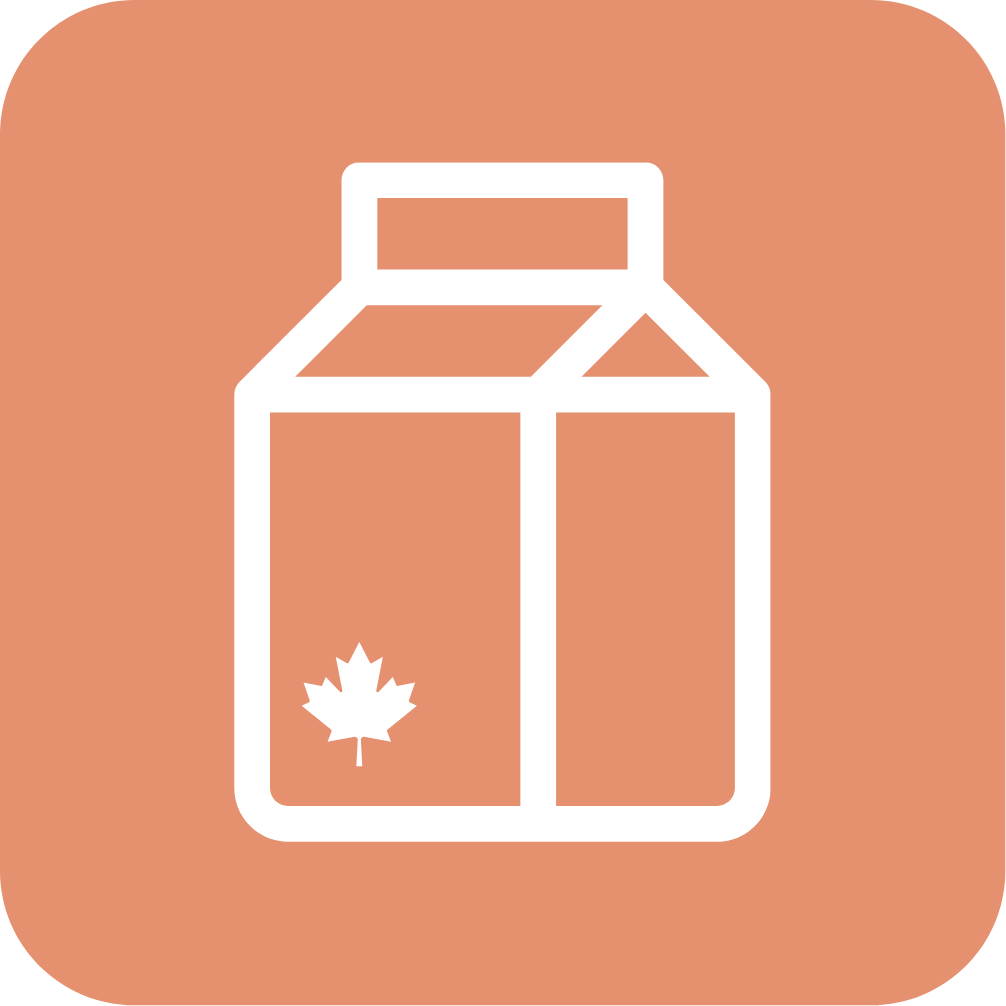
Similar principles exist within Canada’s Food and Drug Regulations, which outline compositional requirements for certain product categories such as dairy products, fruit juices, bakery items, and beverages. These standards of identity are intended to ensure consistency, safety, and consumer transparency in the Canadian food supply.

Like the U.S., the Canadian government is in the process of modernizing its approach by transitioning some of these standards out of the core regulations and into Documents Incorporated by Reference. This shift is intended to create a more agile regulatory framework, allowing technical updates to be made more efficiently without requiring full regulatory amendments.

Although Canada has not announced a deregulation initiative on the same scale as the U.S., this move toward modernization could signal future opportunities for increased regulatory flexibility. Stakeholders in Canada may wish to monitor these changes closely, particularly as they may present opportunities to align product formulations across borders and reduce trade-related barriers.
SOI Considerations for Private Label and Co-Manufacturers
The repeal of outdated SOI is particularly relevant for private label manufacturers, co-packers, and contract manufacturers operating across both the U.S. and Canada. With fewer restrictions linked to rigid ingredient definitions, these businesses may benefit from increased flexibility to standardize formulations, streamline production, and extend product lines across multiple markets.
Retailers that develop private label products for the U.S. market may also find new opportunities to collaborate more effectively with their manufacturing partners. As regulatory frameworks evolve, it becomes easier to create products that align with consumer preferences such as reduced sugar content, added functional benefits, or plant-based alternatives. This flexibility encourages innovation while supporting regulatory compliance.
More broadly, the shift away from prescriptive standards may help reduce trade friction and administrative delays, particularly when product formulations can be aligned more easily between jurisdictions. Canadian stakeholders may wish to monitor these developments as opportunities emerge to improve product development processes and expand market access.
Next Steps for Food Businesses
Here are a few recommended actions to take following this regulatory update:
- Review current product portfolios to determine whether any SKUs were previously constrained by an SOI
- Evaluate whether older reformulations can now be updated using alternative ingredients or processes
- Monitor FDA rulemaking activity and public consultations for additional changes
- Use this opportunity to align U.S. and Canadian product formulations where appropriate
- Consult with regulatory professionals to ensure continued compliance with U.S. food labelling and safety standards.
Final Remarks
The FDA’s decision to revoke 52 food Standards of Identity reflects a broader shift toward modern, flexible, and risk-based food regulation. By eliminating outdated standards that no longer align with current science or consumer needs, the agency is creating space for innovation while maintaining the core principles of transparency and safety.
For food manufacturers, co-packers, and exporters, this presents a valuable opportunity to reassess product portfolios, simplify compliance strategies, and identify new areas for market expansion. Whether your business operates in the U.S., Canada, or both, understanding how these changes may affect your products is an important step toward long-term regulatory success.
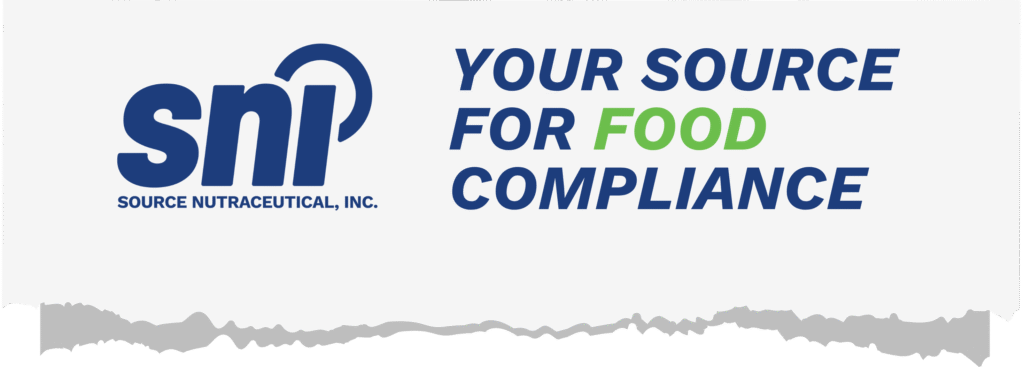
To learn how Source Nutraceutical Inc. can support your team with regulatory planning, product reformulation, or cross-border labelling compliance, contact us today. Our experts are here to help ensure your food products remain competitive, compliant, and market ready.
🥐 More about our services here.
💡 Compliance is easy with the right support!
📩 info@sourcenutra.com
⬇️ Send us a request for support or an introductory call
FAQs
What are Standards of Identity and why were they revoked?
Standards of Identity are legally defined rules that specify what ingredients and processes a food must contain to be sold under a certain name (e.g. milk, yogurt, macaroni). First established in 1939, they ensured consistency, prevented economic adulteration, and protected consumers. The FDA reviewed over 250 SOIs and concluded that 52 are now “obsolete and unnecessary,” given modern nutrition labels, food safety regulations, and consumer protections.
Which types of food products are affected?
The revoked standards cover a range of categories including canned fruits and vegetables, dairy products, baked goods, pasta, canned juices, dressings, and certain seafood items. Many of the products affected are no longer common in the marketplace, or the standards were considered too restrictive to allow for modern formulation and processing methods.
Why is the FDA making these changes now?
The FDA is working to modernize food regulation by removing rules that are no longer necessary and that may create barriers to innovation. The current regulatory environment already requires detailed labelling, allergen disclosure, and safety measures, making some older standards redundant. This update is part of a broader effort to reduce regulatory burden while maintaining public health protections.
How does this impact food manufacturers?
Manufacturers may now have more flexibility to reformulate products using modern ingredients, processes, and technologies. They can also more easily develop new products or update existing ones without being constrained by outdated definitions. This is especially helpful in areas like sugar reduction, alternative dairy formulations, and plant-based innovation. However, companies must still comply with all other safety, labelling, and advertising requirements.
Will more Standards of Identity be revoked in the future?
It is possible. The FDA has indicated that it will continue to review the remaining food standards as part of its ongoing modernization strategy. Additional revocations or updates may be proposed based on relevance, market needs, and alignment with modern regulatory practices.
✷ The content on this website, including information presented in this post, is provided for general informational purposes only and does not constitute legal, regulatory, or professional advice. While efforts are made to ensure accuracy, laws and regulations vary by jurisdiction and may change over time. Readers should not rely on this information as a substitute for advice from qualified legal or regulatory professionals. We disclaim any liability for actions taken based on this content, and users are encouraged to seek guidance specific to their circumstances.
